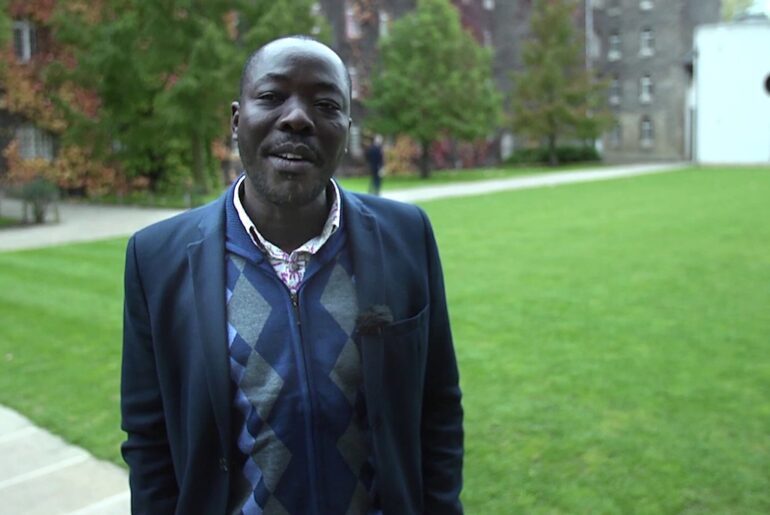Prof. Samuel Kojo Kwofie, the Head of the Department of Biomedical Engineering at the University of Ghana, is advocating for more investment in artificial intelligence (AI) training, research, and technology development to enhance healthcare and reduce poverty in Ghana.
During a virtual session organized by the US Embassy Ghana, Prof. Kwofie emphasized the transformative potential of AI in bridging the healthcare gap between urban and rural communities. He highlighted the importance of AI in improving health outcomes and called for collaboration between the government, corporate institutions, and funding agencies to support AI initiatives.
Prof. Kwofie, who is also a Bioinformatician at the West African Centre for Cell Biology of Infectious Pathogens (WACCBIP), shared insights from his research on AI and health. His team has developed innovative applications such as TubPred, EBOLApred, and BuDb, which aid in drug discovery for diseases like Ebola and cancer.
Moreover, Prof. Kwofie’s research group, in partnership with other institutions, has filed a patent application for Mycolactone as a potential COVID-19 drug. They are also working on applications for regenerative AI and medical image diagnosis.
In addition to his research contributions, Prof. Kwofie mentors a team of biomedical engineering students who won the best research paper presentation award for developing an AI application for automated Covid-19 diagnostics.
Looking ahead, Prof. Kwofie outlined a strategic roadmap for maximizing AI’s impact in Africa, emphasizing the need for supportive policies, infrastructure development, and ethical AI practices. He proposed the establishment of a National AI Network (NAIN) and a National Centre for High Performance Computing (NCHPC) to drive innovation and research in AI.
Despite the immense potential of AI, Prof. Kwofie acknowledged the challenges facing its adoption in Africa, such as limited infrastructure, data quality issues, and ethical considerations. He stressed the importance of culturally adapted AI solutions and transparency in algorithmic processes.
In terms of economic impact, Prof. Kwofie pointed to projections indicating that AI could significantly contribute to Africa’s economy by 2030. He highlighted the financial opportunities in the AI sector and the positive implications for poverty reduction.
In conclusion, Prof. Samuel Kojo Kwofie’s advocacy for increased investment in AI reflects a commitment to leveraging technology for improved health outcomes and economic development in Ghana. As AI continues to evolve, his research and mentorship efforts pave the way for a future where innovation and technology drive positive change in the healthcare sector.

